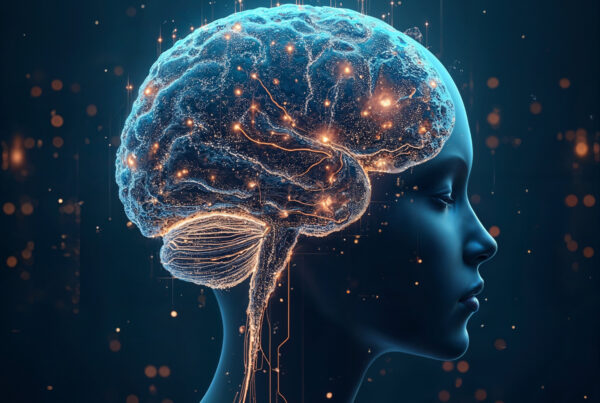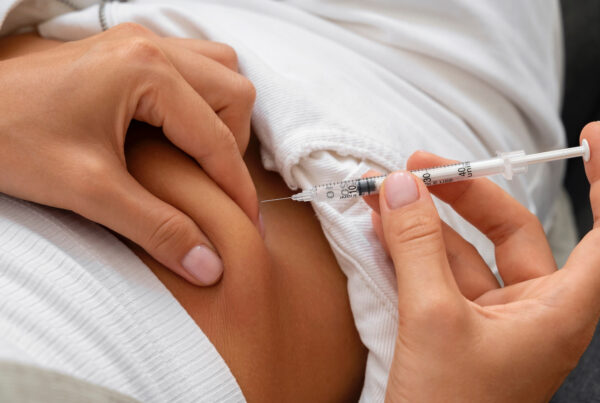Resetting the Circuitry: Prolonged Ketamine Infusions Show Sustained Benefits for Treatment-Resistant Depression
In the open-label study Prolonged ketamine infusion modulates limbic connectivity and induces sustained remission of treatment-resistant depression by Siegel et al. (2021), researchers explored the effects of extended ketamine infusion on brain function and symptom relief in individuals with treatment-resistant depression (TRD). Their findings point to a novel therapeutic strategy: a 96-hour ketamine infusion that produces rapid, significant, and sustained antidepressant effects, along with measurable brain connectivity changes.
This innovative approach not only relieves depressive symptoms in some of the most difficult-to-treat patients, but it also uncovers key brain network dynamics associated with recovery. These results suggest that prolonged ketamine administration could play a future role in remediating the disrupted neural circuits underlying TRD.
Study Overview and Methods
The trial enrolled 23 adults diagnosed with TRD, defined by failure to respond to at least two previous antidepressant treatments. Participants received a continuous intravenous ketamine infusion over 96 hours, titrated from 0.15 mg/kg/h up to 0.6 mg/kg/h.
To mitigate ketamine’s psychotomimetic effects, clonidine was co-administered.
Key features of the study included:
- MADRS used to evaluate depression severity at baseline, Day 1, Week 2, and Week 8
- Resting-state fMRI used to assess functional connectivity changes in limbic and frontal brain regions
- A comparison cohort of 27 matched non-depressed controls provided a neural baseline
The primary goal was to assess symptom response and understand the underlying brain changes associated with ketamine’s therapeutic effects.
Rapid and Sustained Symptom Relief
The antidepressant effect was both profound and enduring:
- MADRS scores dropped from 29 ± 4 at baseline to 9 ± 8 one day post-infusion
- Scores remained improved at Week 2 (13 ± 8) and Week 8 (15 ± 8)
These reductions represent not only a rapid response but also a sustained remission over two months—far exceeding the typical 7–14 day window seen in bolus ketamine studies.
Importantly, 21 out of 23 participants completed the full infusion, reflecting good overall tolerability.
Neuroimaging Findings: Rewiring the Depressed Brain
Using fMRI, the study identified several neurobiological changes post-infusion:
- Decreased hyperconnectivity of the subgenual anterior cingulate cortex (sgACC) with the default mode network (DMN)—a known neural signature of depression
- Reduced hyperconnectivity within the limbic system, including the hippocampus, amygdala, medial thalamus, and nucleus accumbens
- Increased connectivity between the limbic system and frontal cortex, consistent with improved emotional regulation
This combination of downregulation in maladaptive circuits and upregulation in regulatory pathways suggests that ketamine restores neural balance in TRD.
Predictors of Clinical Response
The researchers conducted exploratory analyses to identify neurobiological predictors of response. They found:
- Smaller baseline volume of the right hippocampus was associated with greater improvement in MADRS scores
This finding supports previous observations that hippocampal atrophy may be reversible in depression and potentially responsive to neurotrophic mechanisms activated by ketamine.
Safety and Tolerability
One concern with prolonged ketamine use is safety. However, this study demonstrated:
- No serious adverse events
- Minimal cognitive or psychotomimetic side effects
- High completion rate (91%)
Clonidine’s role in reducing acute ketamine-related side effects may have played a key part in maintaining patient comfort throughout the infusion.
A Shift in Paradigm for TRD Treatment
 This research supports the view that prolonged ketamine infusion may have longer-lasting therapeutic effects than single or intermittent dosing. By modulating large-scale brain networks involved in mood regulation, this approach appears to offer both clinical and neurobiological recovery.
This research supports the view that prolonged ketamine infusion may have longer-lasting therapeutic effects than single or intermittent dosing. By modulating large-scale brain networks involved in mood regulation, this approach appears to offer both clinical and neurobiological recovery.
For clinicians treating TRD, these findings may encourage:
- Consideration of infusion-based protocols over intermittent dosing for select patients
- Close monitoring of functional and structural brain changes as potential biomarkers for treatment response
- Use of adjunctive medications like clonidine to improve tolerability
Limitations and Future Directions
Despite its promising findings, the study is limited by its open-label design and small sample size. Future work should include:
- Randomized controlled trials to confirm efficacy
- Longer follow-up periods to evaluate durability
- Expanded neuroimaging analysis across diverse populations
Combining prolonged ketamine administration with cognitive or behavioral therapies may also enhance both neuroplastic and psychological outcomes.
Conclusion
The study Prolonged ketamine infusion modulates limbic connectivity and induces sustained remission of treatment-resistant depression highlights a potentially transformative approach to treating one of psychiatry’s most challenging conditions.
By offering rapid relief, long-term remission, and measurable brain changes, prolonged ketamine infusion could become a cornerstone of future TRD protocols—especially in patients for whom nothing else has worked.
References
- Siegel JS, Palanca BJA, Ances BM, et al. Prolonged ketamine infusion modulates limbic connectivity and induces sustained remission of treatment-resistant depression. Psychopharmacology. 2021;238(4):1157–1169. https://doi.org/10.1007/s00213-021-05762-6
- Duman RS, Aghajanian GK. Synaptic dysfunction in depression: potential therapeutic targets. Science. 2012;338(6103):68–72. https://doi.org/10.1126/science.1222939
- Krystal JH, Abdallah CG, Sanacora G. Ketamine: a paradigm shift for depression research and treatment. Neuron. 2019;101(5):774–778. https://doi.org/10.1016/j.neuron.2019.02.005
- Abdallah CG, Averill CL, Akiki TJ, et al. Ketamine treatment and global brain connectivity in major depression. Neuropsychopharmacology. 2017;42(6):1210–1219. https://doi.org/10.1038/npp.2016.186
- Nugent AC, Ballard ED, Gould TD, et al. Ketamine has distinct electrophysiological and behavioral effects in depressed and healthy subjects. Mol Psychiatry. 2019;24(7):1040–1052. https://doi.org/10.1038/s41380-018-0191-4




